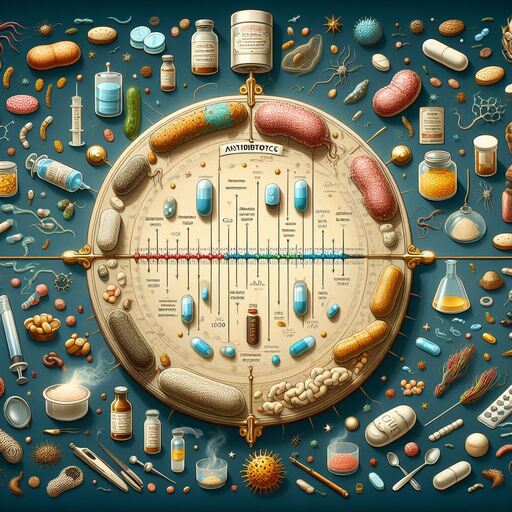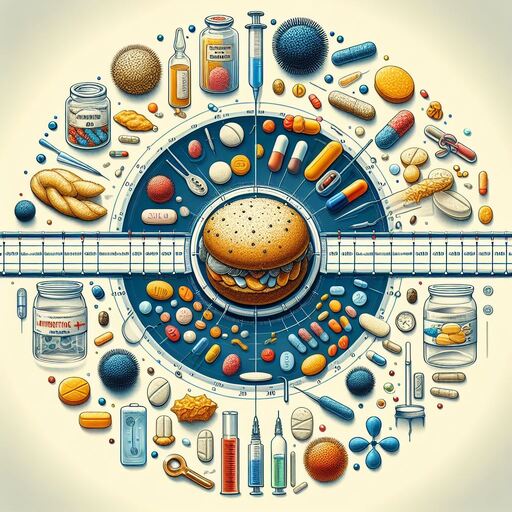How Antibiotics Transform Health Care
How Antibiotics Transform Health Care
Antibiotics have been hailed as life-saving marvels since their discovery in the early 20th century. From minor infections to life-threatening diseases, these powerful medications have transformed the landscape of healthcare, reshaping the way we combat bacterial infections and saving countless lives in the process. In this article, we explore the profound impact of antibiotics on healthcare and the pivotal role they play in preserving human health.
Revolutionizing Treatment:
Before the advent of antibiotics, bacterial infections were a formidable threat, often leading to severe illness, long-term disability, or death. Common ailments such as pneumonia, tuberculosis, and bacterial meningitis posed significant challenges for healthcare providers, with limited treatment options available. The discovery of antibiotics, beginning with penicillin in 1928, heralded a new era in medicine. Suddenly, diseases that were once considered untreatable became manageable, and mortality rates plummeted.
Combatting Infectious Diseases:
How Antibiotics Transform Health Care
Antibiotics have proven instrumental in the fight against infectious diseases, targeting bacterial pathogens with remarkable precision. These medications work by disrupting essential bacterial processes, such as cell wall synthesis, protein production, or DNA replication, ultimately leading to the destruction of the infecting microorganism. Whether it’s a simple urinary tract infection or a life-threatening bloodstream infection, antibiotics provide a powerful weapon against microbial invaders, offering patients a chance at recovery and improved quality of life.
Preventing Complications:
One of the most significant contributions of antibiotics to healthcare is their role in preventing complications from bacterial infections. Left untreated, infections can spread rapidly throughout the body, causing systemic illness, organ damage, and even death. By initiating antibiotic therapy promptly, healthcare providers can halt the progression of infection, preventing severe complications and reducing the risk of long-term sequelae. This is particularly evident in conditions such as bacterial endocarditis, where timely administration of antibiotics can prevent heart valve damage and associated morbidity.
Improving Surgical Outcomes:
How Antibiotics Transform Health Care
Antibiotics have revolutionized surgical practice, significantly improving outcomes and reducing the risk of postoperative infections. Prior to surgery, prophylactic antibiotics are often administered to patients to prevent surgical site infections, which can lead to prolonged hospital stays, additional surgeries, and increased healthcare costs. By reducing the microbial burden at the surgical site, antibiotics help minimize the risk of infection, allowing patients to recover more quickly and return to their normal activities sooner.
Enhancing Public Health:
The widespread use of antibiotics has had a profound impact on public health, contributing to the control and eradication of infectious diseases on a global scale. Vaccines, sanitation measures, and antibiotics have played key roles in the decline of diseases such as tuberculosis, cholera, and syphilis, leading to improved health outcomes and increased life expectancy worldwide. Additionally, antibiotics have been instrumental in managing outbreaks of infectious diseases, such as bacterial meningitis or hospital-acquired infections, helping to contain the spread of pathogens and protect vulnerable populations.
Challenges and Considerations:
How Antibiotics Transform Health Care
While antibiotics have undoubtedly transformed healthcare for the better, their overuse and misuse have led to the emergence of antibiotic resistance—a growing threat to public health. Antibiotic-resistant bacteria pose a significant challenge for healthcare providers, as they are more difficult to treat and may require alternative or more potent antibiotics. To combat this threat, antimicrobial stewardship programs have been implemented to promote judicious antibiotic use, optimize prescribing practices, and minimize the development of resistance.
Conclusion:
Antibiotics have revolutionized healthcare, saving countless lives and improving outcomes for patients with bacterial infections. From the discovery of penicillin to the development of modern synthetic antibiotics, these medications have transformed the practice of medicine and reshaped our approach to infectious diseases. However, the rise of antibiotic resistance underscores the importance of responsible antibiotic use and continued investment in research and development. By working together to preserve the efficacy of antibiotics, we can ensure that these life-saving medications remain a cornerstone of modern healthcare for generations to come.
How Antibiotics Transform Health Care

